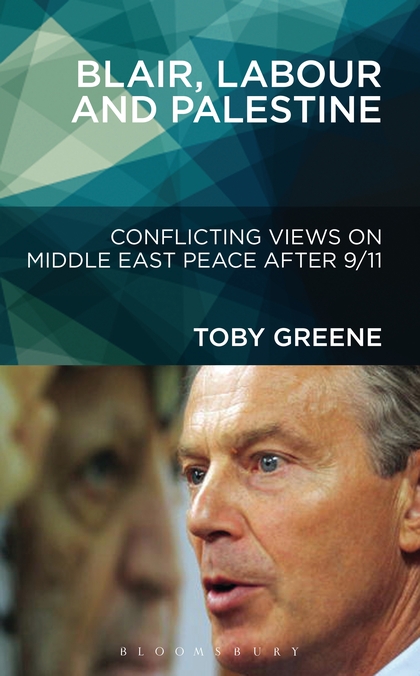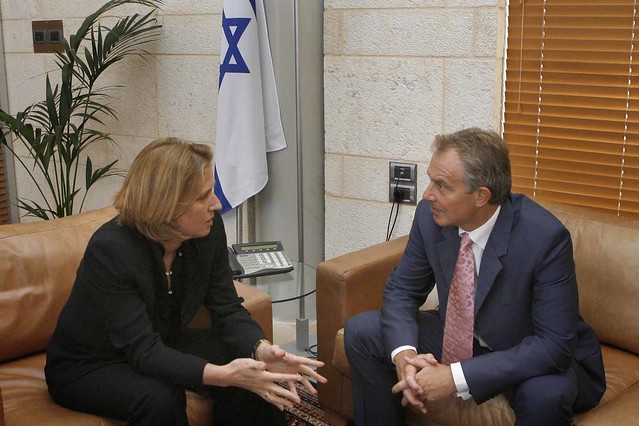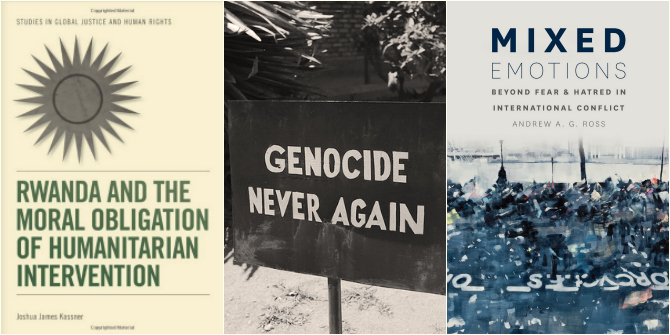 Many of Tony Blair’s policy decisions in the Israeli-Palestinian arena were controversial and politically costly. In Blair, Labour and Palestine, Toby Greene argues that gaps between Blair and his party were rooted in different world views. By offering a detailed analysis of the views held by Blair and key figures within the Labour Party, Greene aims to provide an important contribution that complements other scholarly work on British foreign policy towards the Middle East. However, the book lacks a clear and well-developed analytical framework which would help assessing the role of Blair’s ideas and personal views in shaping and influencing British foreign policy, writes Benedetta Voltolini.
Many of Tony Blair’s policy decisions in the Israeli-Palestinian arena were controversial and politically costly. In Blair, Labour and Palestine, Toby Greene argues that gaps between Blair and his party were rooted in different world views. By offering a detailed analysis of the views held by Blair and key figures within the Labour Party, Greene aims to provide an important contribution that complements other scholarly work on British foreign policy towards the Middle East. However, the book lacks a clear and well-developed analytical framework which would help assessing the role of Blair’s ideas and personal views in shaping and influencing British foreign policy, writes Benedetta Voltolini.
 Blair, Labour and Palestine: Conflicting Views on Middle East Peace after 9/11. Toby Greene. Bloomsbury. August 2013.
Blair, Labour and Palestine: Conflicting Views on Middle East Peace after 9/11. Toby Greene. Bloomsbury. August 2013.
After more than 60 years, the Israeli-Palestinian conflict is still ongoing and is very unlikely that it will be solved any time soon. Therefore, political leaders are inevitably forced to deal with it and its repercussions on the Middle East. The United Kingdom and its incumbent Prime Minister make no exceptions: British colonial past, its current interests in the region, its role within the European Union and its strong bilateral ties with the US make British foreign policy towards the conflict of utmost relevance. More specifically, Tony Blair’s premiership for almost ten years is worth being analysed in order to get a better understanding of the factors that underlined and shaped the British approach towards the Israeli-Palestinian conflict under his mandates.
Again this backdrop, Toby Greene’s book explores why British foreign policy was so distinctive towards the Israeli-Palestinian conflict after 9/11 and how we can explain it. By drawing on insights from Foreign Policy Analysis – which concentrates on the level of individuals and how leaders are able to shape and determine the foreign policy of their country – as well as on the role of ideas in International Relations, Greene investigates British foreign policy during Blair’s three terms. In his analysis, he focuses on Blair’s ideas and world views as the determining factors that shaped the UK’s position towards the Israeli-Palestinian conflict after 9/11. Not only was Blair particularly proactive on this issue, but his position on the Israeli-Palestinian conflict was very different from the views held by the majority of his party fellows and other branches of the government, including the Foreign Office.
On the basis of official documents, secondary literature and interviews with politicians, officials, journalists and experts, Toby Greene reconstructs the evolution of Blair’s view on the Israeli-Palestinian conflict and the link with political Islam and terrorism. The first two chapters describe the evolution of the Labour party’s position on the Israeli-Palestinian conflict: from a position that was more sympathetic to the Palestinian cause, the advent of Blair as leader of Labour since 1994 turned the party’s policy to a more pro-Israeli stance. Nevertheless, disagreement within the party remained quite strong during the entire premiership of Blair, who was however able to centralise foreign policy-making and side-line the Foreign Office, which was more pro-Arabist.
The following chapters detail the evolution of Blair’s position towards the Israeli-Palestinian conflict and terrorism, which became a domestic security issue after the London bombing in July 2005. More specifically, Greene argues that Blair’s view of the Middle East and the nature of political Islam were based on assumptions ‘rooted in a world view blending Christian Socialism, Atlanticism and neoliberalism’ (p. 4), led Blair to adopt a confrontationalist approach, whereby radical Islam was portrayed as anti-liberal and against Western values of freedom and democracy. The origin of Islamist terrorism was not determined by legitimate grievances that were a response to Western policies in the area, such as the Israeli-Palestinian conflict show. On the contrary, the conflict was instrumentally used by Islamists to mobilise more people around their cause.

Rejecting the post-colonial guilt that characterised the British Left since the 1970s, Blair approached foreign policy from a convinced pro-US stance and the belief that democracy should be promoted around the world. In the first years of his mandate, however, British foreign policy towards the Israeli-Palestinian conflict was driven by the events on the ground and the legacies of British previous involvement in the region. A clear turning point occurred after 9/11, when the issue of violent religious extremism began to be perceived as a threat in the West. Since then, Blair maintained, and even strengthened, his view that the real problem with terrorism was ‘radical Islam’, which was seen as an anti-Western, anti-liberal ideology that needed to be defeated.
In a nutshell, Blair did not share the view that Western policies were creating grievances in the Middle East: radical Islamists were manipulating the Israeli-Palestinian conflict to inculcate hatred against the West. The conflict was to be solved, as this would act as a catalyst for change in the region. However, peace was not to be reached by exerting pressure on Israel, but, according to Blair, it was crucial to reform Palestinian institutions and security sector to create the conditions for peace. On this aspect, Blair’s position substantially differed from other branches of his government, which were concerned with the increasing radicalisation of British Muslims and believed that it was important to listen to their concerns as far as British foreign policy was concerned. Foreign policy was indeed seen as a reason of radicalisation and needed to be treated accordingly. This view was, however, never shared by Blair, who continued to support a policy of confrontation with radical Islam and a personal involvement in the Israeli-Palestinian conflict.
By offering a detailed analysis of the views held by Blair and key figures within the government and the Labour Party, Greene provides an important contribution that complements other scholarly work on British foreign policy towards the Middle East. However, the book falls a bit short of the expectations raised in the beginning. The book lacks a clear and well-developed analytical framework which would help assessing the role of Blair’s ideas and personal views in shaping and influencing British foreign policy. This problem is also determined by the fact that Greene does not properly discuss some alternative explanations of British foreign policy and what his approach elucidates that other accounts do not. In other words, it is not clear to what extent ideas played a causal factor and were not used only instrumentally to pursue different goals, or why other factors behind the formulation of British foreign policy do not fully explain what happened under Blair’s government. Linked to that, it would be interesting to have a better understanding of why and how Blair’s managed to impose its views and shape British foreign policy towards the Israeli-Palestinian conflict and radical Islam. While there are some mentions scattered around in the book, this aspect is not addressed clearly and coherently. In addition, some parts of the book are a bit disconnected from each other and make it difficult to follow the main argument advanced by the author. Again, this is mainly due to the lack of a clear and fully-fledged analytical framework supporting the entire structure of the book.
Despite these issues, the book provides a detailed narrative of Blair’s views on the Israeli-Palestinian conflict and therefore complements other works that discuss British foreign policy towards the Middle East. Moreover, Blair, Labour and Palestine offers a different perspective in explaining foreign policy towards the Israeli-Palestinian conflict, by focussing on the role of ideas and the personal world views of political leaders.
—————————–
Benedetta Voltolini defended her Ph.D. at the London School of Economics and Political Science (LSE) at the end of September 2013. She is now lecturer of International Relations at Maastricht University (Netherlands). Her Ph.D. thesis investigated the role of non-state actors in EU foreign policy-making towards the Israeli-Palestinian conflict. She was visiting fellow at the European Union Institute for Security Studies (September – December 2011), Visiting Ph.D student at the Freie Universität Berlin (May-June 2012) and at the Centre MaxPo, Sciences Po (April-June 2013). Her research interests include lobbying and advocacy in EU foreign policy, EU policy towards the Arab-Israeli conflict and EU democracy promotion in the Mediterranean and the Middle East. Read more reviews by Benedetta.







